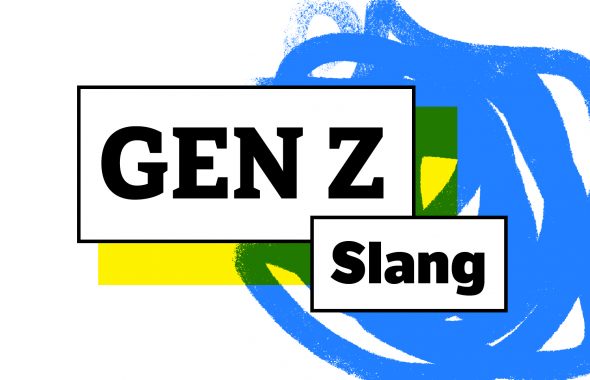Over the last few years, lovers of language have casually observed an increase in speakers beginning sentences with the word so. What are some new ways in which so is being used in colloquial speech, and what cues do these utterances send to listeners?
Consider the following example:
Speaker 1: Dr. Johnson, when did you start studying this disorder?Speaker 2: So, I had noticed certain patients seemed to…
In this example, Doctor Johnson is replying to the interviewer’s question with a sentence-initial so. But why? One explanation is that in this case, so is being used as a filled pause, much in the way that “well,” “um,” and “like” are used in conversation, a topic discussed in the Slate podcast Lexicon Valley. However, according to Lexicon Valley host Mike Vuolo this explanation is overly simplified; so as a discourse marker is “more nuanced” than that. When one person asks a question and the other person’s response begins with so, “it sounds like you should be continuing a narrative,” says Grant Barrett, linguist and host of A Way with Words. So is not being used just to fill a pause, it seems, but as a tool for conversation management.
Researcher Galina Bolden studied recordings of conversations, looking at the difference between the sentence-initial oh and so. In a 2010 New York Times article Anand Giridharadas sums up insight Bolden supplied via email: “To begin a sentence with ‘oh,’…is to focus on what you have just remembered and your own concerns. To begin with ‘so,’…is to signal that one’s coming words are chosen for their relevance to the listener.” If words like so and oh were used to arbitrarily fill a pause, they wouldn’t take on such different functions from each other. Bolden suggests here that the sentence-initial so is a way for the speaker to subtly cue to the listener that the following information is relevant to the listener’s interests. Whether or not the information is actually relevant is for the listener to decide, though perhaps this cue makes it more likely for a conversational partner to pay attention. (If you want to learn more, Bolden’s research is also discussed in this Language Log post.)
Let’s look at another example. Imagine two strangers are talking at a party, and one is trying very hard to carry on a conversation with the other:
Speaker 1: So, how do you know Myra?Speaker 2: College.Speaker 1: So, I met Myra rock climbing at Yosemite…
In this example, the sentence-initial so is being used in two different ways. So works as a conversational prompt in the first line, and in the third line, so is used to carry on the conversation. In this way, so is a tool that helps ensure the conversation keeps up its pace by allowing a quick transition from one topic to another. Additionally so is sometimes used to change the subject altogether; a person might start a non-sequitur with the word so. It’s a way for a savvy conversationalist to avoid awkward silences. Professor Geoffrey Raymond explores the sentence-initial so in his paper “Prompting Action: The Stand-Alone ‘So’ in Ordinary Conversation.” Take, for example, the following exchange:
Speaker 1: I went to the grocery store this afternoon.Speaker 2: Which one did you go to? I love the one on Lawrence and Rockwell. They have excellent produce.Speaker 1: That’s where I always go. So I was buying avocados…
Raymond calls this the so-prefaced upshot (discussed in detail in this Lexicon Valley episode). Speaker 2 took the conversation on a tangent, and Speaker 1 brought it back to the topic she wanted to discuss; in this way Speaker 1 is able to return to the original narrative. This use of so assumes a certain level of engagement in the discussion. The speaker assumes that the listener is engaged enough to connect the words following so to an earlier moment in the conversation. This kind of assumption harks back to Bolden’s theory that the sentence-initial so is a way of involving a listener in a conversation by somehow indicating that the information to come is relevant to the listener. In this example, so is directly referential, though as we can see from earlier examples, the point of reference can range from obvious to abstruse. The point of reference might not even be a verbal marker in the conversation; it could, as described above in the second example, be something like a feeling of awkwardness.
In English, the word so is highly polysemous. It can be used as an adverb, a conjunction, a pronoun, an interjection, or an adjective. You could argue that the sentence-initial so is an interjection (see the second interjection sense, or sense 16, of well), but the so discussed in this article closely resembles, and might be best described, as a coordinating conjunction. Generally coordinating conjunctions are used to connect words, phrase, clauses, or sentences. However, the sentence-initial so is unique in that the connection being made is more conceptual than grammatical. The items being linked are streams of conversation, and not the traditional adjacent words, phrases, clauses, or sentences. This often irks grammar sticklers, but linguists and lexicographers hear this emerging use of so with the analytic distance of a scientist. We watch. We observe. We wait to see how deeply it permeates the utterances of English speakers. We wonder if it will become a standard way to use so in the future.
Have you heard or seen any good examples of the sentence-initial so? What part of speech do you think the sentence-intial so falls under? Let us know in the comments.
Check back next week for Part II of this post, in which we discuss the dangling so, or when people end their sentences with “so…”













